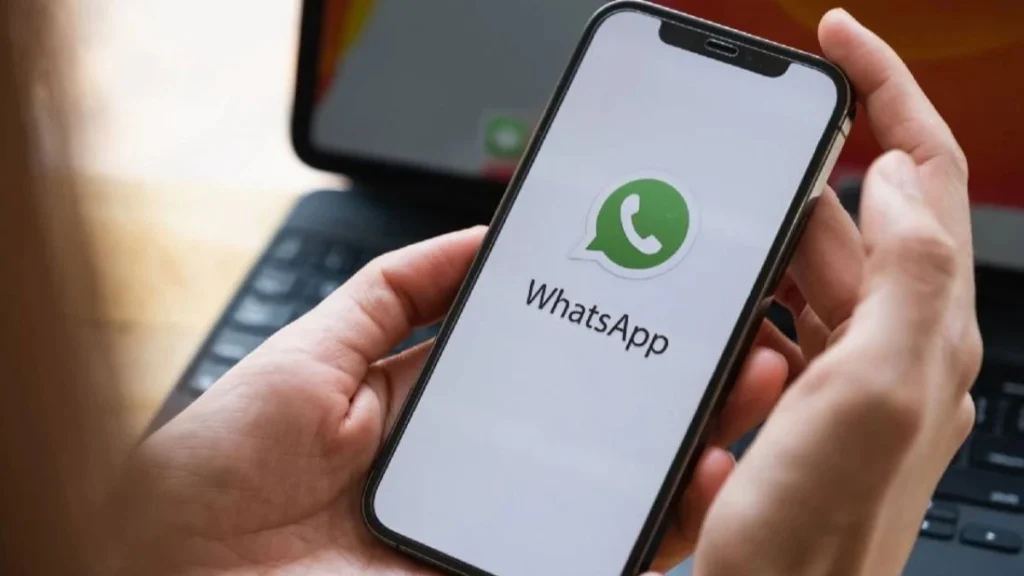contact info
- 3rd Floor, Gujranwala Business Center, Near KFC, G.T. Road, Gujranwala, Pakistan
- +92 303 0813333
- +92 303 0644484
- info@hashlearning.com
- info@hashlearning.com

In a world where digital privacy is becoming increasingly important, WhatsApp has once again taken a bold step to ensure its users feel safe while chatting online. The messaging giant, which boasts over 2 billion users globally, has officially launched its Advanced Chat Privacy feature — a significant move aimed at strengthening end-to-end security and giving users more control over their personal conversations.
This new privacy-focused upgrade is part of WhatsApp’s ongoing mission to create a safer, more secure, and private communication platform. But what exactly does the Advanced Chat Privacy feature include? How does it affect regular users? And what does it mean for the future of secure messaging?
Let’s dive deep into WhatsApp’s latest privacy enhancement and explore everything you need to know.
Before we get into the technicalities of WhatsApp’s new feature, it’s essential to understand why privacy matters in 2025 more than ever.
Cybersecurity threats are evolving. From data breaches to unauthorized surveillance, people have become increasingly aware of how easily their personal information can be accessed, misused, or leaked. Messaging apps, in particular, have become prime targets for:
Phishing attacks
Social engineering
Spyware intrusions
Government surveillance
Users today are not just looking for a fast, reliable app to chat — they’re seeking digital safe zones, places where their conversations are truly private and protected.
WhatsApp, already known for its end-to-end encryption (E2EE), is now going beyond the basic encryption model by offering advanced control tools that provide an added layer of security. That’s where the new feature comes in.
WhatsApp’s Advanced Chat Privacy is designed to take chat protection to the next level. While encryption ensures that only the sender and receiver can read the messages, this new feature focuses on what happens on your device — and how you can guard it against prying eyes.
Chat Lock Enhancement
Stealth Mode for Private Chats
Improved Biometric Access
Secret Notifications
Multi-Device Privacy Control
Let’s break each of them down.
Previously, WhatsApp introduced a basic Chat Lock feature that allowed users to lock specific chats using biometrics or a password. The Advanced Chat Privacy update enhances this by:
Allowing users to lock entire folders of chats.
Supporting custom password/PIN separate from the phone’s unlock code.
Adding auto-lock timers after inactivity.
This means that even if someone has access to your phone, they can’t read sensitive chats without additional authentication.
This feature is especially useful for people who often hand over their phones to kids, coworkers, or friends, but want to keep personal or professional messages hidden.

One of the most notable additions is Stealth Mode. When activated:
Locked chats disappear from the main chat list.
They are only accessible via a hidden access method (such as typing a specific phrase in the search bar or a double-tap gesture).
Stealth Mode adds an invisible layer to your chat security — perfect for journalists, business professionals, or anyone who wants an extra level of privacy.
This innovation is WhatsApp’s way of responding to increasing user demand for features that go beyond what’s visible on screen.
Biometric security has become a gold standard in mobile privacy. WhatsApp’s new update introduces:
Dual biometric options — users can now select between face recognition or fingerprint scan.
Biometric lock for opening the app itself, not just specific chats.
This is a big step forward, ensuring that even if someone knows your phone passcode, they still can’t access WhatsApp without your biometric consent.
Another game-changing feature is the Secret Notifications option. When enabled:
WhatsApp hides sender names and message previews from notifications.
Users can set custom codes or gestures to view notifications only after authentication.
This feature helps eliminate accidental message reveals, especially when using WhatsApp in public, during meetings, or around nosy people.
Previously, WhatsApp’s multi-device support meant your account could be accessed on up to four additional devices. While convenient, it posed a potential risk.
With Advanced Chat Privacy:
Users receive instant alerts when a new device connects.
There’s an option to approve or deny device connections remotely.
You can also set auto-expiry limits for linked devices.
This empowers users to manage their privacy across all devices in real time.
Activating these features is simple and user-friendly. Here’s how to turn them on:
Update your WhatsApp app to the latest version (available on Android and iOS).
Go to Settings → Privacy → Advanced Chat Privacy.
Toggle on the features you want:
Chat Lock
Stealth Mode
Biometric Security
Secret Notifications
Device Access Management
You’ll also be prompted to set a unique passcode or biometric lock for certain features.
While everyone gains from enhanced privacy, the new features are particularly helpful for:
Professionals with confidential client information
Journalists and activists who need discreet communication
Parents who want to keep adult conversations away from kids
Business owners sharing sensitive company data
Anyone living in shared spaces or under digital surveillance
In short, the update benefits anyone who values peace of mind while chatting.

This move by WhatsApp puts considerable pressure on other messaging apps like Telegram, Signal, and Messenger.
Telegram has secret chats but lacks end-to-end encryption by default.
Signal is secure but lacks the widespread adoption and seamless device linking of WhatsApp.
Messenger (Meta’s other product) has optional encryption and limited advanced privacy tools.
WhatsApp is aiming to dominate not just in usage, but in privacy leadership — a significant brand move as public trust in tech companies becomes increasingly fragile.
According to Meta executives, this update is part of a larger rollout titled “Privacy by Default.” Rumors suggest that the next versions of WhatsApp might include:
Self-destructing chat folders
Privacy profiles for different user groups
AI-powered threat detection (without reading your messages)
WhatsApp seems committed to creating a user-centric messaging ecosystem that puts privacy first.
The internet has changed the way we live, work, and connect. But that connection often comes at the cost of personal privacy. WhatsApp’s Advanced Chat Privacy feature is more than just a technical upgrade — it’s a philosophical shift toward digital empowerment.
By giving users control, choice, and confidence, WhatsApp is helping reshape the standards for private communication in the modern age.
Whether you’re chatting with family, handling sensitive business deals, or just sending memes to friends, knowing your conversations are protected gives you the freedom to express yourself without fear.
And in today’s world, that’s the real luxury.
You must be logged in to post a comment.